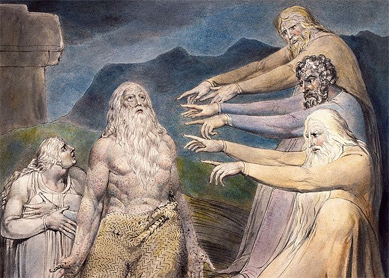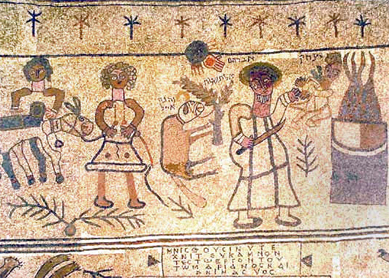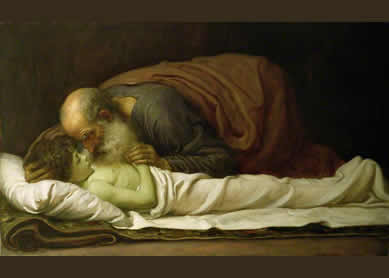Genesis establishes many of the basic themes for understanding the rest of the Bible. Therefore, the harrowing story of how Abraham nearly sacrifices his son Isaac on Mount Moriah is more important and more troubling than if it appeared later in the Bible or if its chief human protagonist were anyone other than the prototypical ancestor Abraham. The key term for understanding the story appears in verse 12: “Now I know that you are one-who-fears-God, since you did not withhold your son, your one-and-only, from me” (author’s translation). Many biblical passages identify “fear of God” as the core religious virtue, “the best part of wisdom” (Prov 1:7). To fear God is to live in humble recognition of the incalculable difference between God and humans. This is the first time we see anyone (allegedly) practicing that virtue, so the divine statement here leaves the morally alert reader with two questions:
How could a virtuous person be willing to kill a child?
The story is often said to be about total obedience, but we know that there is no virtue in unquestioning obedience to a tyrannical demand. However, the opening words of the story suggest a different understanding: “After these things, God tested Abraham” (Gen 22:1). God’s plans for bringing good to the inhabitants of the world depend on Abraham (Gen 12:3). However, certain things have happened that give God reason to doubt Abraham, making it necessary to test him, to see if Abraham can bear the weight of that immense trust. Twice Abraham has let his wife Sarah go into the harem of a foreign king (Gen 12 and Gen 20); he did it to protect himself, evidently not trusting God to see them through their dangerous sojourns among foreigners. So what is at stake is not obedience merely but total mutual trust. The point of the test is to see whether Abraham trusts God even to the point of relinquishing the child on whom the blessing, the covenant, and his own happiness depend. Abraham’s fear of God is a condition of complete vulnerability before God, “costing not less than everything” (T. S. Eliot); that is the human condition on which the covenant rests.
How could a good God demand that Abraham kill his son?
There are two grounds only on which God can be exonerated from the charge of sadism or tyranny here. First, this is a real test; God does not know in advance how Abraham will respond. Only by demanding everything from Abraham can God learn whether he indeed places his commitment to God before everything else. The book of Genesis as a whole does not support the common theological notion that God knows everything before it happens, every human response before it is offered. Thus, when Abraham passes the test, God’s own relief is palpable: “Now I know …” (Gen 22:12).
Second, God demands everything from Abraham because Abraham must recognize that he is not in control of the covenant relationship. This story provides a necessary balance for the very different picture in Gen 18, where Abraham aggressively challenges God’s judgment (literally!) on Sodom. On that occasion, God listened to Abraham’s bold, even presumptuous question: “Shall not the judge of all the earth do what is just?” (Gen 18:25) and God listened to his intercession for the (hypothetical) innocent people in the city; shortly thereafter, God calls Abraham a “prophet,” specifically with respect to the power of his intercessory prayer (Gen 20:7). In the worldview of Genesis, genuine relationship with God entails balance between boldness and submission. In Gen 18, we see Abraham’s unstinting compassion for humans; in Gen 22, we see his unstinting devotion to God. Psychologically speaking, it may be nearly impossible to hold those two in perfect balance, but theologically speaking, both are necessary for those, both Jews and Christians, who struggle to live in covenantal relationship with God. Thus with this most important ancestor, the Bible begins to show what it is to serve “prophetically” in covenantal context: negotiating dual commitments to humanity and to God, from moment to moment discerning when to challenge God on behalf of weak and sinful humanity and when to submit in “fear” to the sometimes inscrutable divine demand.
Bibliography
- Levenson, Jon D. The Death and Resurrection of the Beloved Son: The Transformation of Child Sacrifice in Judaism and Christianity. New Haven: Yale University Press, 1993.
- Davis, Ellen F. Getting Involved with God: Rediscovering the Old Testament. Lanham, Md.: Rowman & Littlefield, 2001.
- Berkovits, Eliezer. With God in Hell: Judaism in the Ghettos and Deathcamps. New York: Sanhedrin Press, 1979.





